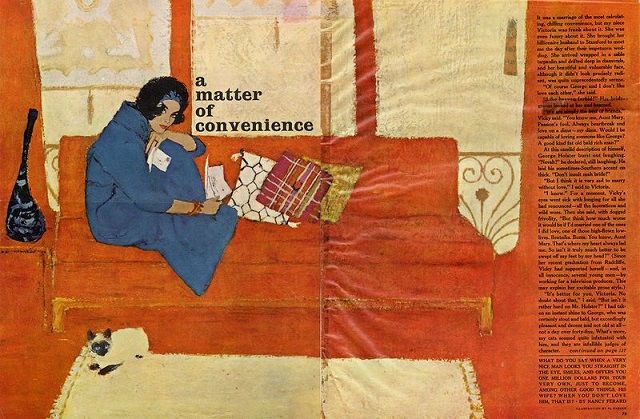I recently watched the documentary, “A Plastic Ocean,” and it shocked me.
I was taken aback by the destruction we have caused on our planet, particularly in the realm of manufacturing and disposing of plastic waste.
One fact had the greatest impact on me: Every single piece of plastic ever produced still exists today.
Every. Single. Piece.
This abundance of plastic waste has a devastating effect on both our land and ocean creatures, as they struggle to determine the difference between waste and consumable food.
Sea turtles, which have been around for over 100 million years, are facing a problem only inherent within the last 50: Being unable to tell the difference between jellyfish, a common source of their food, and plastic grocery bags. This mistake causes them fatal blockages in their digestive system and, as a result, they are declining at an alarming rate. According to the U.S. Environmental Protection Agency, Americans use more than 380 billion plastic bags and wraps each year, many of which end up in our oceans and kill over 100 million marine animals.
Since the industrial revolution, we have become accustomed to purchasing products in containers and packages, without giving much of a thought to where our waste goes once we consume the product. Commercialism and the increase in the production of material goods have led to our “out of sight, out of mind” mentality, in combination with the idea that items from the store disintegrate or somehow disappear from the planet when we are done with them. Unfortunately, neither of these ideas have any truth in them.
It is also possible that we are fully aware of the implications of our consumer choices, and yet we choose not to make any changes in our lives when it comes to the environment due to the assumption that one person cannot possibly make a significant difference.
But, I have come to believe that one person truly can make a difference—not only in terms of the reduction of waste, but also by educating and helping others to change their perspective. I have come to realize that my lifestyle does not have to change dramatically, as becoming waste-free is more about the journey, rather than the final destination.
However, embarking on the journey is not only a challenge I now want to undertake, but also something I feel is my responsibility as a resident of this planet.
Here are some small modifications I have made to my life recently in the pursuit of becoming completely waste-free:
1. Reduce disposables.
The kitchen is the beating heart of any household for unnecessary disposable items, many of which I have chosen to replace. For example, I now use reusable rags instead of paper towels and pack my lunch in glass containers, rather than using plastic sandwich bags.
Outside of the kitchen, we can make many small changes as well. Do I really need to place my produce in a plastic bag before purchasing it? I never use that plastic bag once I unpack my groceries and put them in the fridge. What about bags that the food is packed in to take home? I can bring my own bags, thank you.
2. Buy in bulk.
I try to pack several different-sized mason jars in a reusable bag to bring with me to the grocery store as I purchase flour, granola, nuts, and even cheese from the deli counter. Some stores, such as Whole Foods, are more accommodating of this method than others, and they will actually weigh the jars prior to purchasing goods.
I have also chosen to replace my body wash, shampoo, dish soap, and hand soap with castile soap, which you can buy in large quantities from many major retailers, including Walmart.
I am looking forward to my next waste-free adventure, which is to begin creating all-natural cosmetics and lotions, using recipes that I discover online.
3. Prepare meals mindfully.
I was appalled to learn that 30 percent of the food that is purchased in the United States goes to waste. To combat this, I have stepped away from preparing the first meal that comes to mind and, instead, have started using the drawer in my fridge to contain foods that are close to expiring. It has been a fun challenge to come up with creative recipes for these food items that I would have otherwise thrown away.
4. Visit local thrift stores.
In addition to plastics, the textile industry is heavily responsible for much of the waste that has accumulated on our planet, not only through the production of clothing, but also when the items are discarded. There’s nothing like taking a much-needed trip to my local Goodwill on a Saturday afternoon to find my next favorite article of clothing and save it from ending up in the landfill!
5. Take care of clothes.
I have discovered that buying fewer items of clothing that are of higher quality not only saves money in the long run, but also makes it more likely that I will take time to mend any damages that occur. Alternative Apparel is a great online store that sells comfortable and affordable clothing produced with materials derived from eco-friendly sources, such as sustainable crops and recycled materials. In addition, it’s helpful to keep in mind that washing clothes in cold water and hanging them on the line to dry not only saves energy, but it also increases their lifespan!
6. Embrace the digital world.
I used to organize my life with a student agenda that was thicker than the textbooks I was carrying in my nylon backpack. I was also the person who had a wall-to-wall CD and DVD collection, complete with numerous books that provided me with every piece of information possible about the bands I was listening to. I was a collector of “things” but now many of the personal items I own are stored on a device. This not only reduces the amount of “stuff” I consume, but also makes my life less cluttered and more portable. Although I enjoy reading a hard copy of a novel as much as the next person, many of the books produced these days have covers made with plastic and cannot be properly recycled.
7. Simplify cleaning supplies.
Baking soda and white vinegar are natural alternatives to dangerous chemical cleaners. They are not only less expensive to purchase, but they also eliminate the inevitable plastic bottle waste. I have found these two products alone are much more effective in getting rid of tough stains on kitchen and bathroom surfaces than any bottle of common household cleaner.
8. Eliminate the unnecessary.
Up until last year, I had a “junk drawer” that was essentially filled with items I could not classify anywhere else in my life: multiple decks of playing cards from places I’ve never been, pens that may or may not have been functional, cosmetic samples from magazines and stacks of coupons (many of which were expired). If someone had taken everything from this drawer it when I wasn’t looking, I wouldn’t haven’t missed a single thing.
Did I really need any of the items I had the compulsion to take? Did I need that free pen they gave to me at that conference last week? What about the little bottles of shampoo and conditioner in the hotel room? I now take a moment to think about whether I need something or if I just want it because it’s available.
~
I am usually reluctant to take on a challenge if I feel I may now be able to execute it perfectly, however, I have found it helpful not to look at this endeavor in terms of black/white or right/wrong, but rather as something I can continuously improve upon.
I am by no means living a completely waste-free life—yet. But it’s a journey I am happy to be on. Even though it will undoubtedly take me several years to master this new way of life, becoming waste-free is the best decision I’ve ever made. Not only has it helped me to save money and reduce the physical and mental clutter in my life, but it has also helped our beloved planet.
~
Author: Michelle Pomeroy
Image: Modern Graphic History Library
Editor: Khara-Jade Warren









Read 0 comments and reply